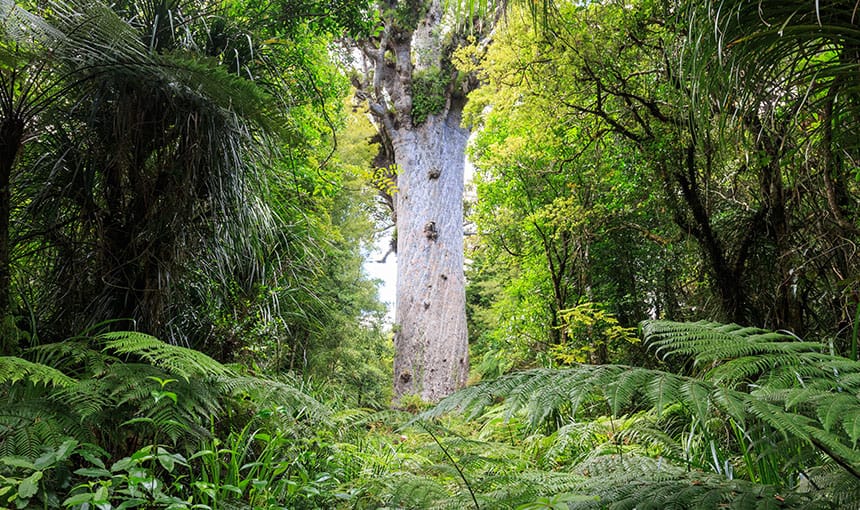“We deal with a lot of people who have got healthy kauri who are really concerned about keeping them healthy” says Mels. “and then at the other end of the spectrum we’ve got participants who have very sick kauri and they want to treat their trees, so we help them do that.”
After receiving a positive test result for the kauri dieback pathogen Phytophthora agathidicida, Kauri Rescue work with the land owners to provide education, advice and assistance with treatment if appropriate.
By becoming a trust, Kauri Rescue are now able to look for funding in addition to government – such as through applying for philanthropic grants, sponsorship and fundraising. “I hope it will have a really positive impact. It will free us from dependence on government agencies for funding. Previously we’ve been a project within Plant and Food Research, funded by the BioHeritage Challenge” says Mels. “We’re hopeful that becoming a charitable trust will make us a bit more sustainable in the long-term.”
At this stage, Kauri Rescue are currently awaiting new funding contracts from the Ministry for Primary Industries (MPI), Auckland Council, and Ngā Rākau Taketake. Without any funding, work in this past season has been slow. “We have people that get in touch with us constantly wanting our help – it’s not like that has stopped just because we’ve had no funding, so we’ve had to keep things ticking over voluntarily for the last year.”
A long waiting list of people requesting help with kauri on their properties is leaving the Kauri Rescue team eager to get started before winter hits, and conditions become too wet for fieldwork. Funding from MPI will allow them to expand their work outside of Auckland, reaching affected areas in Northland, Waikato and Bay of Plenty.
Once their funding is available, Kauri Rescue will be beginning their new work by engaging with mana whenua. Fieldwork over the winter period is not practical, as there is more risk of spreading the pathogen around. “We’ve got a lot of groundwork to do with iwi engagement before we get out and do any fieldwork in other regions – so that’s the kind of work we can do over the winter.”
Mels and the team at Kauri Rescue are incredibly grateful to all of their funders – without whom they wouldn’t be able to do this work at all, with so many landowners who are desperate for help. “They really care about their kauri, they really want to support the health of their kauri, and we can help them to do that.”
“We’ve got a full work programme ahead of us and we’re really excited to get into it. We’ll be moving into those new areas as quickly as we possibly can to help as many land owners, land managers and mana whenua as we can.”
